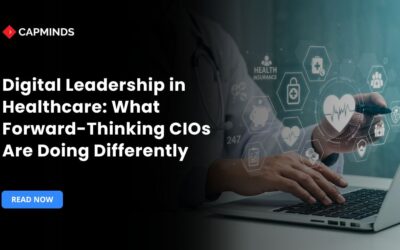Why Clinics Should Move Away From Local Servers in 2026
The healthcare sector is now experiencing the greatest digital transformation in 20 years. By the time we get to 2026, the days of the so-called server closet, in which patient information is stored in a buzzing box in the back office, are practically over.
Why now? The combination of more strict federal rules, the proliferation of AI-powered diagnostic systems, and financial inability to sustain on-premise hardware has given rise to an adapt or go out of business atmosphere.
For practice managers and clinic owners, it is no longer a conservative option to remain on local servers, but it is a risk to the operations.
Issues in Clinic Local Servers
In order to understand why change is required, we must admit that there is friction that is being created by the existing on-premise setups. Most practice managers consider servers as a set-it-and-forget-it utility, but the truth is complex.
The Maintenance Burden
Physical servers require constant attention. They require physical security, special cooling, stable sources of power, and frequent updates of hardware. Once a hard drive fails, the practice comes to a stop.
The dangers of local server usage in clinics are commonly reflected in urgent expenses and distressing calls to software services.
Difficulties in Accessibility
Remote working is a common practice in a post-pandemic world. By definition, local servers bind data to a physical place.
Although VPNs provide a workaround, they tend to be cumbersome, slow, and prone to dropping out. When a doctor wants to examine a chart at home or a billing expert wants to work remotely, a local server works against them at every turn.
The Threat of Downtime
Reliability is the most critical issue. A downtime in clinic servers may result in appointment cancellations and loss of revenue, and frustrated patients.
This is because there is one point of failure as compared to the cloud system, which is redundant and has a backup in a different location. Should the motherboard burn or the server room get flooded, your clinic will be unable to operate until the replacement comes.
Why 2026 Is the Turning Point
Smart Healthcare will move from trend to necessity as data complexity explodes. Clinics will no longer store just text records; they’ll handle high-res images, genomic data, and continuous streams from wearables.
As data volumes soar, traditional local servers will struggle to scale affordably. Meanwhile, AI-driven diagnostics and automation will demand vast computing power that on-premise systems can’t handle.
Healthcare’s future depends on flexible, cloud-based infrastructures that can power advanced analytics, ensure secure storage, and keep up with the new era of intelligent care.
Benefits of Switching to Cloud Systems
The other alternative to the server closet is the cloud. Particularly, moving to the cloud EHR in the clinics will help to change the IT infrastructure of the clinics and make it a flexible wing rather than a fixed anchor.
True Interoperability
Cloud systems are constructed in such a way that they communicate with each other. Cloud-based clinical systems support the APIs when it comes to sharing data with a local health facility, communicating with a lab result website, or connecting with the iPhone health app of a patient. This provides a holistic perspective on the health of patients that local servers find it hard to aggregate.
Automatic Updates and Innovation
Software upgrade is a project with a local server. It is scheduling downtime, running installers, and wishing that nothing would go wrong.
Updates will occur in the background on the cloud. New features, bugs, and security patches are automatically applied to your clinic. This keeps you up to date on the most competent version of your practice management software.
Scalability for Growth
Scalability of healthcare practices is one of the uncredited advantages. You do not have to purchase a new server should you employ two new doctors or start a satellite office.
You simply add user licenses. The cloud is also able to expand at will, so you do not have to worry about hardware purchases; you can concentrate on patient care.
Related: Top 10 EHR Mistakes Clinics Make During Setup
Compliance, Data Security & HIPAA
The greatest myth that prevents the clinics from migrating is that their data is safer when they can see it. The local servers are vulnerable to physical theft, fire, and more advanced ransomware attacks that target small practices whose firewalls are too weak.
The healthcare industry is also prone to risks of server failure, which is further worsened by the reality that most of the local backups are frequently carried out inconsistently by busy workers.
The Cloud providers, such as AWS, Azure, or Health Cloud vendors, spend billions on security. They employ enterprise-level encryption, around-the-clock threat detection, and geo-redundancy.
Seamless Compliance
Switching to the cloud eases the regulatory load. The migration to the cloud that is HIPAA compliant is also a guarantee that the complete burden of physical security and data encryption is placed on the vendor.
Although the access policy is still under the clinic, the integrity of the data is ensured by the world-class security measures that can never be matched by the IT budget of a small clinic.
The Cost Comparison between the Local Servers and the Cloud
The monthly subscription cost of cloud services can be a thorn in the flesh of the owners of the practices that perceive it as an unending cost. But when you examine the Total Cost of Ownership (TCO), the arithmetic is different.
Local server maintenance will cost:
- Initial physical acquisition (thousands of dollars after every 3-5 years)
- Costs of IT personnel or managed service provider
- Electricity and cooling charges
- Operating system and database licensing charges
- The cost of non-operating (forgone earnings)
Instead, cloud computing is based on the OpEx model as opposed to CapEx. The fee is a fixed monthly cost that includes hosting, security, backups, and support.
It has no large capital outlay every few years and no surprise bills in case of hard drive failure. The cloud will provide superior cash flow management and reduced TCO long-term to most clinics.
How Clinics Can Transition Smoothly
A local environment in the cloud is a big operational change, though it does not necessarily need to be disorganized. The following is a road map to a successful transition:
- Audit Your Data – Clean up Records before rolling out. Archive inactive patient files that are required to be maintained due to compliance.
- Select the Right Partner – Find vendors that deal with cloud EHR clinics. Enquire in particular of their uptime guarantees and disaster recovery procedures.
- Check Connectivity – Cloud platform is based on the internet. Make sure that there is a high-speed internet connection that is redundant (i.e., a fibre line with a backup of 5G) in your clinic.
- Onboard Your Employees – The process will evolve. Take time to train your staff on the new cloud-based clinical systems so that they buy in and are efficient.
- Plan the Cutover – Switching on a Monday morning is not such a great idea. Schedule your migration on a weekend so that it takes time to transfer data and test it.
Transform Your Clinic with CapMinds’ Cloud Migration & Health IT Services
As clinics move away from outdated local servers, the need for a trusted technology partner becomes essential. CapMinds helps clinics transition from traditional on-premise systems to secure, scalable, and future-ready cloud infrastructures without disruption.
Our end-to-end Health IT services ensure your practice operates smarter, faster, and more compliantly in 2026 and beyond.
At CapMinds, we support clinics with:
- Cloud EHR Implementation & Migration Services
- Health IT Consultation Services for workflow modernization
- HIPAA-Compliant Infrastructure & Data Security Services
- Interoperability & API Integration Services
- Practice Management & EHR Optimization Services
With our tailored digital health tech solutions, your clinic can eliminate server downtime, strengthen security, improve scalability, and deliver superior patient care.
Whether you’re switching to the cloud, upgrading your EHR, or building a modern health IT ecosystem, CapMinds is your long-term digital transformation partner.
Let’s modernize your clinic. Schedule your free consultation today.




